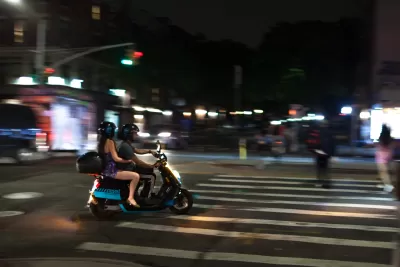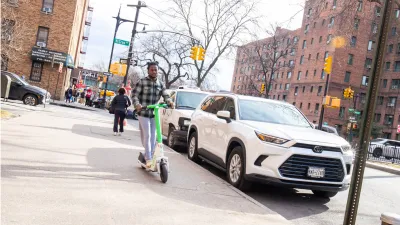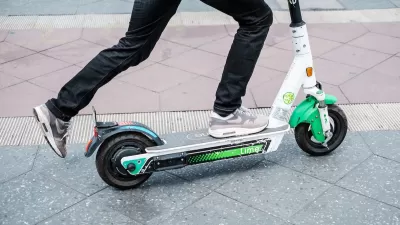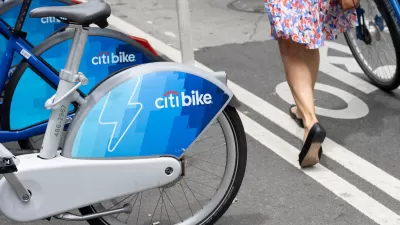The latest arrival on the shared mobility scene are Revel mopeds, part of the next generation of devices offering an alternative to car travel.

Henry Grabar takes a closer look at Revel mopeds, which rolled out onto the streets of New York and Washington, D.C., this summer. "In their first 60 days of operation, the company says, the scooters clocked more than 300,000 rides—meaning the service had obtained, overnight, almost half the daily 2018 ridership of New York’s inter-borough ferry system, which receives hundreds of millions in public subsidies."
The mopeds have a top speed of 30 miles per hour, reports Grabar. "One interesting thing about the Revel is that its model hews more closely to existing car culture than the weirder locomotion startups that preceded it. Signing up for Revel requires a driver’s license; users are responsible for traffic violations they commit while riding."
Cities still have a need for fast, flexible modes that can replace car travel, particularly for short trips. And as shared mobility has evolved, travelers are more willing to try out new devices like the Revel moped. "Commuters are now accustomed to trying new things to get where they want to go," notes Grabar.
FULL STORY: Are Revel Mopeds the Fad of the Summer or the Future of Urban Transportation?

Maui's Vacation Rental Debate Turns Ugly
Verbal attacks, misinformation campaigns and fistfights plague a high-stakes debate to convert thousands of vacation rentals into long-term housing.

Planetizen Federal Action Tracker
A weekly monitor of how Trump’s orders and actions are impacting planners and planning in America.

In Urban Planning, AI Prompting Could be the New Design Thinking
Creativity has long been key to great urban design. What if we see AI as our new creative partner?

Pedestrian Deaths Drop, Remain Twice as High as in 2009
Fatalities declined by 4 percent in 2024, but the U.S. is still nowhere close to ‘Vision Zero.’

King County Supportive Housing Program Offers Hope for Unhoused Residents
The county is taking a ‘Housing First’ approach that prioritizes getting people into housing, then offering wraparound supportive services.

Researchers Use AI to Get Clearer Picture of US Housing
Analysts are using artificial intelligence to supercharge their research by allowing them to comb through data faster. Though these AI tools can be error prone, they save time and housing researchers are optimistic about the future.
Urban Design for Planners 1: Software Tools
This six-course series explores essential urban design concepts using open source software and equips planners with the tools they need to participate fully in the urban design process.
Planning for Universal Design
Learn the tools for implementing Universal Design in planning regulations.
planning NEXT
Appalachian Highlands Housing Partners
Mpact (founded as Rail~Volution)
City of Camden Redevelopment Agency
City of Astoria
City of Portland
City of Laramie





























